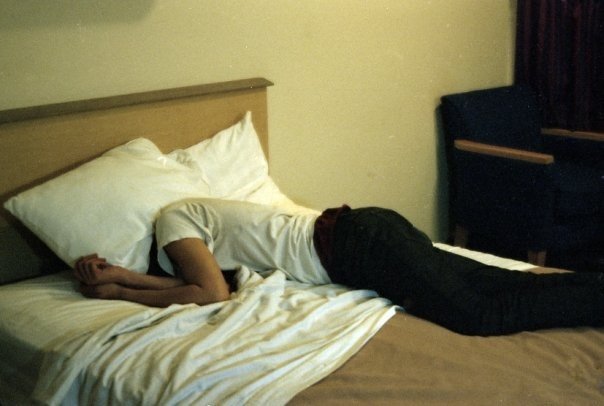 Check out the original article here. Read about its creation below.
Check out the original article here. Read about its creation below.Biographical Information: Stephen Rodrick, 42, currently works as a contributing editor at New York magazine, in addition to contributing to the New York Times Magazine. Known for his celebrity and politician profiles, Rodrick has written about the likes of former New York Mayor Rudy Giuliani (included in 2007's "The Best American Political Writing"), director Judd Apatow, actor Christopher Walken and more. He holds a BA and MA in political science from Loyola University of Chicago and a Masters in journalism from Northwestern.
The Inception and Research: The original idea for "God & Worshipper: A Rock-and-Roll Love Story, of Sorts" came from Adam Moss, the editor of New York, back in August of 2008. "He knew I was looking for a good music story to do and he'd seen the Mountain Goats live and mentioned he thought their fans might make an interesting story," said Rodrick. Having already been a casual fan of the band, the writer was excited for the story and set in on some research.
"I spent a good few weeks just listening to the MG stuff that I wasn't familiar with which was fairly daunting as they've released 600-700 songs," he said. "I'm not saying I knew it all after the two weeks, but I was better prepared to then start my reporting."
Eventually, the story would follow two voices: Mountain Goats obsessive Stephen Wesley and Mountain Goats singer/lyricist John Darnielle. In an attempt to reconcile uber-fandom from both the fan and artist perspective, "God & Worshipper" thoughtfully explores the connection between a boy and his favorite band and simultaneously, between a musician and his fans. The dramatic edge of the story was in the fact that despite his borderline obsession, Wesley was constantly thwarted in his attempts to see Darnielle perform live. The story ran about six month after the idea was originally floated.
The News Hook: According to Rodrick, without a new Mountain Goats record slated for release "a piece on the [Mountain Goats] didn't really have a natural hook, so the piece sat in the magazine's queue for a month or two."
Reporting: Rodrick began by setting up time with Mountain Goats frontman John Darnielle after explaining to him the thrust of the story. "He was good enough to post on the MG forum what the story was about and my email," Rodrick explained. "I received a half dozen or so responses and met with three or four of the more interesting fans including Stephen." Rodrick thought he was a smart and interesting kid and the fact he had been thwarted in his efforts to see the band just made him all the more intriguing. Rodrick spent parts of four days with Darnielle in Durham, NC and then spent five or six sessions with Stephen, "over lunch, at his school, or at my place listening to MG songs."
The writer believed the story wouldn't really work without a payoff of some sort, so he attempted to set up a meeting between the two. Both were reluctant to do it -- Darnielle because "he's really shy and doesn't like to make small talk" and Wesley because "he thought he'd come across as an idiot and would be crushed if John didn't like him." To Rodrick, this just made the emotional payoff all the more powerful. "Even if the meeting had gone badly, that would have been fine, I just wanted to observe their natural reaction to meeting whatever that might be."
Editing: The piece was significantly edited with Rodrick's original piece twice as long. "We struggled with making it a shorter piece as the magazine dealt with few edit pages because of the recession, while maintaining the voice of the two main characters."
"I won't say the cuts weren't painful, but i think we reached a fairly good middle ground at 4,600 words," he said. "I did three drafts: they liked the first one, thought I lost my way on the second one, and then we reached a compromise on the third go-around. This is fairly standard magazine process."
The second draft, according to Rodrick, was too focused on trying to put the Mountain Goats and cult bands into some kind of cultural context and strayed too far from the essence of the piece which Rodrick believed was neatly summed up in an early headline: "A Boy And His Band."
"Once we re-focused on that, the piece turned out really well," said Rodrick.
Post-Publication: After the story ran, Rodrick spoke with both Darnielle and Wesley and there was a spirited discussion of the story on the forum pages of the Mountain Goats' website. "I also had lunch with Stephen after the piece came out to make sure he was ok and that the piece hadn't impacted his life too much," said Rodrick.








